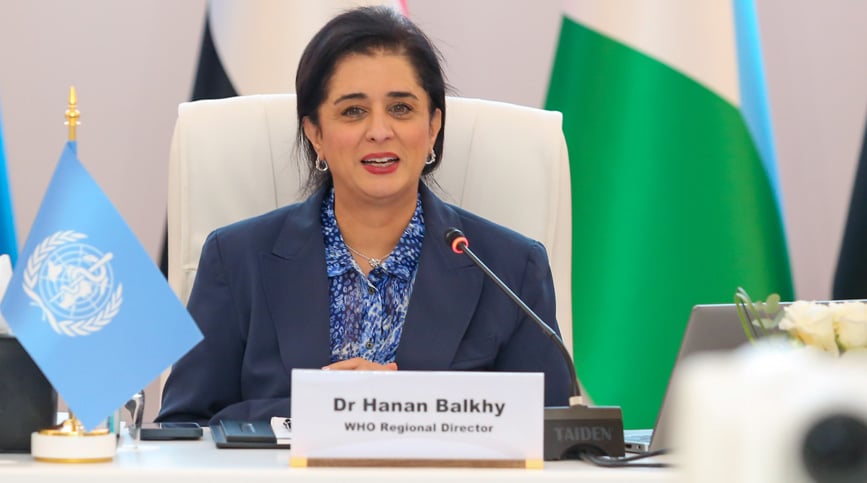WHO EMRO Opening Remarks by Dr. Hanan Balkhy

It was a momentous occasion as health leaders gathered to discuss the pressing health challenges facing the Eastern Mediterranean Region. Speaking at the event, Dr. Saleh al-Hasnawi, Iraq’s Minister of Health, emphasized the World Health Organization’s (WHO) commitment to enhancing health across the Arab region. The partnership between WHO and the League of Arab States has yielded significant achievements, but the need for a unified response to escalating humanitarian crises remains critical.
Strengthening Health Initiatives
The collaboration between the World Health Organization and the League of Arab States has led to several impactful health initiatives. Among these are the Regional Nursing and Midwifery Strategy, the Multi-sectoral Arab Strategy for Maternal, Child, and Adolescent Health, and the Arab Strategy on Health and Environment. These strategies aim to improve health outcomes across the region through evidence-based actions and solidarity.
Additionally, WHO has played a vital role in disaster risk reduction, providing support to member states in risk profiling and emergency planning. This year, the Sixth Arab Platform for Disaster Risk Reduction in Kuwait highlighted the importance of health-focused capacity-building. Furthermore, the joint efforts in tobacco control have set a precedent for multisectoral cooperation, showcasing the effectiveness of a unified Arab response to public health challenges.
Addressing Humanitarian Crises
Despite the progress made, the health outlook in the Eastern Mediterranean Region remains concerning. Currently, 15 percent of the population requires humanitarian assistance, a figure that is on the rise. The region is grappling with numerous humanitarian crises, hosting one-third of all global emergencies. Countries like Sudan and the occupied Palestinian territory face dire health situations where access to care is critical.
In light of these challenges, WHO urges Arab League members to enhance their support—financially, technically, and politically. The organization is mobilizing emergency response efforts while also investing in long-term solutions. The Regional Strategic Operational Plan for 2025–2028 aims to promote universal health coverage and strengthen health systems across the region.
Future Collaborations and Initiatives
Looking ahead, WHO is focused on advancing its initiatives to improve health outcomes. The organization is set to drive three flagship initiatives that will enhance health workforce development, improve access to essential medical products, and address substance use challenges. These efforts are crucial for building resilient health systems and ensuring health security in the region.
Moreover, the upcoming discussions at this year’s World Health Assembly regarding the Pandemic Agreement present a significant opportunity. This agreement aims to bolster pandemic prevention, enhance surveillance, and ensure equitable access to care. WHO is counting on the support of member states to make this agreement a reality.
Commitment to Partnership
The partnership between WHO and the League of Arab States is more urgent than ever. Both organizations are committed to formalizing and expanding their collaboration through a Memorandum of Understanding. This agreement will further strengthen their joint efforts to deliver health and hope to every individual in the Arab region.
As health leaders continue to address the pressing challenges, the call for unity and action resonates strongly. Together, they aim to create a healthier future for all, ensuring that the needs of the population are met with urgency and compassion.
Observer Voice is the one stop site for National, International news, Sports, Editor’s Choice, Art/culture contents, Quotes and much more. We also cover historical contents. Historical contents includes World History, Indian History, and what happened today. The website also covers Entertainment across the India and World.
Follow Us on Twitter, Instagram, Facebook, & LinkedIn

